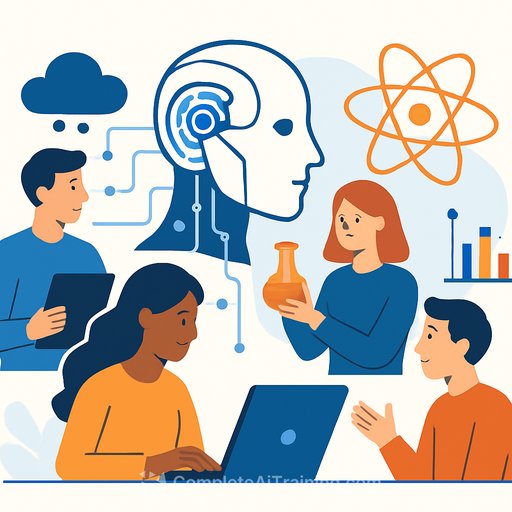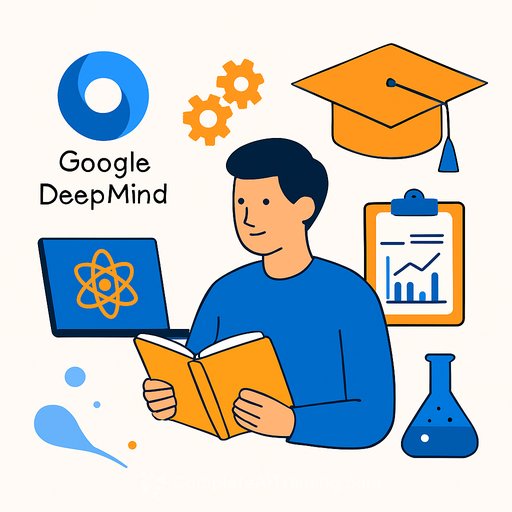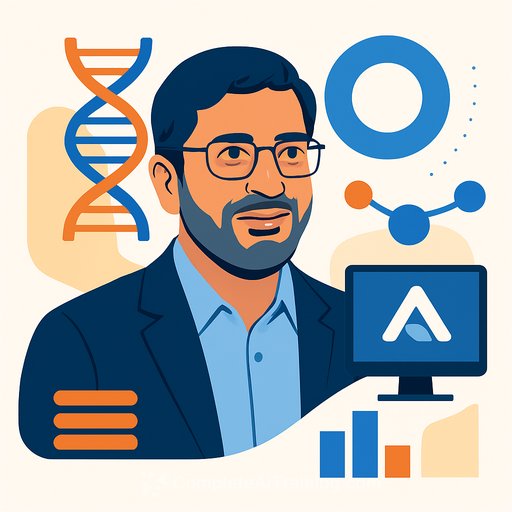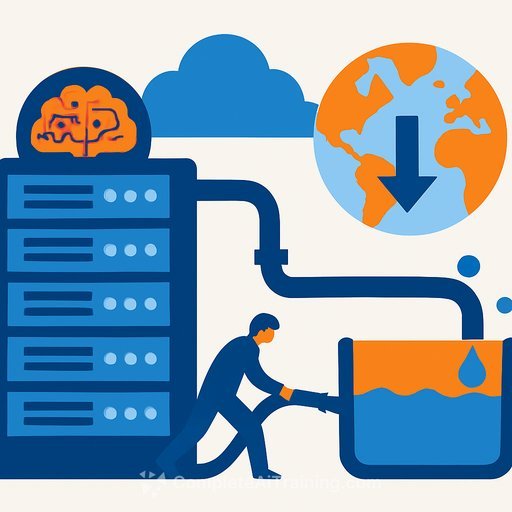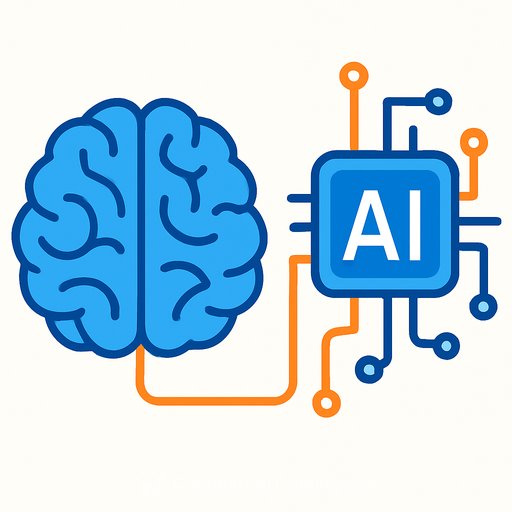International fellowships to explore AI's impact on science
A new £4 million AI Metascience Fellowship Programme will fund 29 early career researchers across the UK, US and Canada to study how artificial intelligence is transforming scientific work. The programme is led by the UK Metascience Unit, a joint effort between the Department for Science, Innovation and Technology and UK Research and Innovation (UKRI). Each fellow will receive up to £250,000 for projects lasting up to two years.
The cohort spans philosophers, social scientists and AI researchers. Their brief is clear: examine how AI is changing research practices, improve the way the research system uses AI, and surface risks to validity, ethics and reliability.
Why this matters for scientists
AI is moving from tool to teammate. This programme looks at how it affects productivity, creativity, research variety and careers, and how it shifts norms, incentives and evaluation.
The aim is practical: generate evidence that helps labs, funders and publishers apply AI responsibly, without undermining trust in scientific findings.
Priority research themes
- How researchers work and think: A University of Manchester project will study AI use across biomedical career stages and its effects on productivity, creativity, topic diversity and career paths.
- AI for sustainable agriculture: A University of Reading project will assess how AI-enabled innovation can support farmers and agri-food workers, improving efficiency while protecting the environment.
- Other questions include:
- How AI changes what topics scientists choose to study.
- The ethics of publishing outputs produced with tools researchers may not fully grasp.
- Ways AI could lower barriers for researchers with specific learning disabilities.
Programme scope
- Build evidence on how AI is changing research practices and what it means for future advances.
- Support government, funders and industry to use AI in research while managing risks to validity, ethics and reliability.
- Focus on AI's impact on scientific research rather than broad AI ethics.
- Address how AI affects creativity, diversity and productivity, how scientists think about their fields, and how the structure and political economy of research shift.
Funding, cohort and timeline
- 29 fellows in total.
- 18 UK-based fellows funded by UKRI.
- 6 US-based fellows funded by the Alfred P. Sloan Foundation.
- 5 Canada-based fellows funded by the Social Sciences and Humanities Research Council (SSHRC).
- Up to £250,000 per project for up to two years.
Selection and community
The programme piloted a distributed peer review system where applicants also served as assessors, each reviewing 8-10 proposals. This brought diverse expertise into selection and increased transparency.
All fellows will attend a fully funded summer school in 2026 to build a transatlantic research community focused on AI's effects on science.
Leaders across the UK, US and Canada emphasized both promise and risk. They underscored AI's role in pattern-finding, proposing new discovery methods, improving accessibility, and the need for evidence on where AI helps and where it could mislead.
What this means for your lab right now
- Map AI use across your group: literature review, coding, analysis, visualization, writing and review. Set norms for disclosure and provenance.
- Pilot high-impact workflows: code copilots, data wrangling assistants, experiment planners and literature mapping tools. Measure time saved and error rates.
- Strengthen governance: version control for prompts, red-teaming for hallucinations, clear authorship and contribution statements.
- Invest in skills: train staff on prompt practices, evaluation, and domain-informed oversight of AI outputs.
- Prioritize inclusion: test AI interfaces and supports for researchers with specific learning disabilities.
- Plan for audits: document models used, data sources, parameters and checks to support reproducibility.
If you are building team capability, explore practical course paths for research roles via Complete AI Training.
Funded fellows and project areas
UK Metascience Unit-funded fellowships
- Niall Curry, Manchester Metropolitan University - Developing disciplinarily situated recommendations for responsible generative AI use in the social sciences.
- Aurelia Sauerbrei, University of Oxford - From human to machine: the ethics of how AI is reshaping data in scientific research.
- Liangping Ding, The University of Manchester - AI and knowledge production.
- SJ Bennett, Durham University - Synthetic metascience: tracing AI-generated epistemic shifts in scientific research practice and cultures.
- Jorge Campos Gonzalez, University of Reading - sustAInable: AI-driven research for sustainable agri-food futures.
- Batool Almarzouq, The University of Edinburgh - Rethinking AI reshapes scientific norms, collaboration dynamics and disruptive science in wicked problem research.
- Cen Cong, Newcastle University - Caught in the current: rethinking research anxiety and creativity in the age of AI.
- Basil Mahfouz, University College London - Investigating AI's impact on evidence sources for policymaking.
- Danny Maupin, University of Surrey - Reducing epistemic trespassing when using generative AI: a mixed methods study.
- Fanqi Zeng, University of Oxford - AI in criminology research: mapping methodological shifts and epistemic risks.
- Chelsea Sawyer, The University of Manchester - AI's role in enhancing research accessibility and equity for researchers with specific learning disabilities.
- Megan Crawford, Edinburgh Napier University - The impact of AI on scientific foresight.
- Zihao Li, University of Glasgow - Removing legal hurdles in copyright and data privacy for AI-driven research to expand AI's usefulness for science.
- Youyou Wu, University College London - Is generative AI reinventing the language of science?
- Emma Gordon, University of Glasgow - Understanding in the age of AI: preserving scientific achievement in AI-assisted research production.
- Joseph Shingleton, University of Glasgow - Generative AI and the future of research software engineering.
- Charlotte Collins, University of Cambridge - How humans shape AI for life sciences research.
- Justyna Bandola-Gill, University of Birmingham - Transforming evidence synthesis: AI and the evolution of the evidence ecosystem.
Alfred P. Sloan Foundation-funded fellowships
- Mel Andrews, Princeton University - Evaluating the epistemic credentials of AI in science evaluation.
- Kati Kish Bar-On, Boston University - The shape of intelligence: AI and the changing culture of mathematical knowledge.
- Gabrielle Benabdallah, University of Washington - Technologies of reading: from print culture to AI-augmented science.
- Benjamin Santos Genta, New York University - AI, similarity, and the future of systemic reviews.
- Seyed Mohamad (Moh) Hosseinioun, Northwestern University - Funding the future: AI changes what is science, who does it, and how.
- Siyu Yao, University of Cincinnati - Understanding the AI revolution in science: an integrated history, philosophy, and metascience approach.
SSHRC-funded fellowships
- Anas Ramdani, Dalhousie University - AI's impact on scientific collaboration in environmental research: a metascience perspective.
- Graham Macdonald, University of the Fraser Valley - Ask ChatPhD: uses of AI by research trainees and implications for the political economy of university-based research.
- Antoine Boudreau LeBlanc, Université Laval - Governing the neural turn in AI: ethical frameworks for foundation models in cognitive science.
- Maxime Harvey, Institut national de la recherche scientifique - AI research infrastructure: a comparative study across STEM and the social sciences and humanities.
- Emadeddin Naghipour, University of Victoria - Between judgment and automation: researchers, AI, and the future of peer review.
Leader perspectives
Science Minister Lord Vallance noted that AI is already changing how science works, from finding unexpected patterns in data to proposing new approaches to discovery, while making research more accessible for some disabled researchers.
ESRC Executive Chair Stian Westlake highlighted the programme's dual track: fund rigorous research and apply innovation in how research itself gets funded via distributed peer review.
Joshua M. Greenberg, Program Director at the Alfred P. Sloan Foundation, emphasized that large language models and other AI tools are global phenomena, and this collaboration brings a multi-national perspective to how scientific knowledge is generated, stored, applied and shared.
The Honourable Evan Solomon, Minister of Artificial Intelligence and Digital Innovation and Minister Responsible for Canada Economic Development for Southern Ontario, underscored the value of international collaboration to use AI well and develop the next generation of responsible researchers.
Your membership also unlocks:

